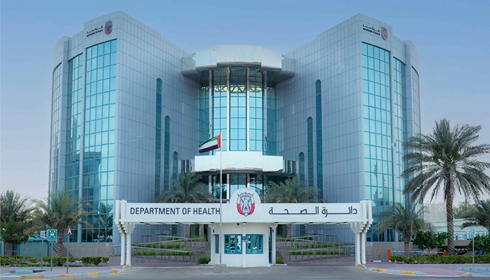
Abu Dhabi's Healthcare Milestone Brings Rare Disease Treatment Near Home for Indian Patients
The Abu Dhabi Department of Health (DoH) has successfully administered a novel gene transfer therapy for Duchenne Muscular Dystrophy (DMD) for the first time in the emirate. Sheikh Khalifa Medical City (SKMC), a SEHA and PureHealth affiliate, offers this ground-breaking treatment, advancing life sciences and healthcare in the region.
Delandistrogene moxeparvovec was provided to the first DMD patient in the emirate by certified medical staff members of SKMC in cooperation with the Research and Innovation Center (RIC). This gene therapy, which was till now only available in the United States, introduces working dystrophin genes into the patient's cells, potentially changing the disease course by raising muscle strength and improving quality of life.
Delandistrogene moxeparvovec's release in Abu Dhabi gives hope for Indian youngsters suffering from DMD, a serious hereditary disorder mostly affecting young boys. Particularly as India struggles to provide contemporary genetic medications, the achievement in Abu Dhabi could inspire similar healthcare methods and cooperation.
Although treatment availability in Abu Dhabi marks improvement, it also highlights the financial and logistical difficulties Indian patients could run into. Many families find it challenging to receive current treatments because of the great cost and travel necessary. This underlines how urgently legislative changes and worldwide cooperation are needed to make such drugs more accessible and reasonably priced.
Following Abu Dhabi's strategic approach could help the Indian healthcare sector greatly. Similar initiatives in India could find inspiration in the Emirati Genome Program's establishment of a national genetic registry meant to enhance surveillance and management of genetic diseases like DMD. Establishing a national genetic register would help to ensure consistency in genetic testing and provide empirical data to support the creation of focused treatments.
The Executive Director of the Department of Health's Research and Innovation Center, Dr. Asma Ibrahim Al Mannaei, underlined Delandistrogene moxeparvovec's potential to enhance outcomes for DMD patients as well as generate excellent research possibilities. Head of Paediatric Neurology at SKMC, Dr. Omar Ismayl, underlined the hospital's commitment to offer modern treatments as well as the possibility of therapy changing the natural course of the disease.
An important turning point in medicine with far-reaching effects is the efficient application of gene therapy for DMD in Abu Dhabi. For Indian patients, it represents a road toward equivalent progress and a source of hope. Healthcare experts, legislators, and foreign allies must cooperate in a well-coordinated manner if one wants to profit from these discoveries completely. Overcoming logistical and financial obstacles as well as guaranteeing equitable access to life-saving medications depends on this cooperation.